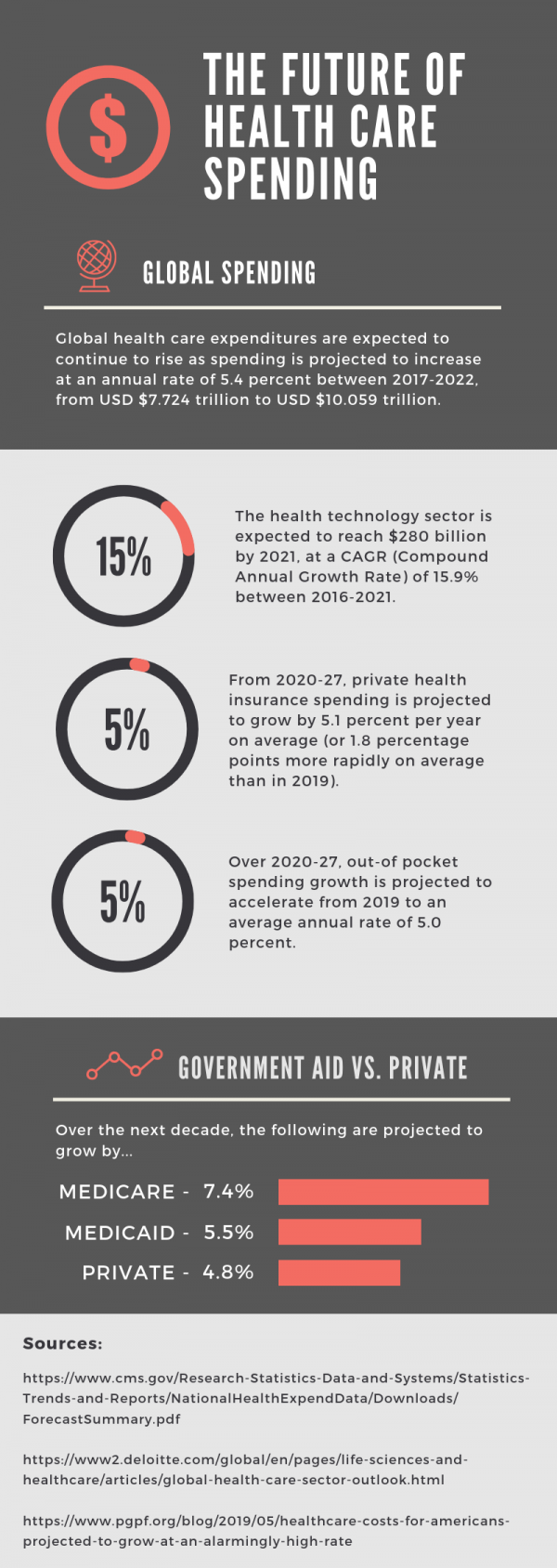The Future of Health Care Spending - Legacy ER
- Category: News and Updates
- Posted On:
- Written By: David Apple
Health care is a major expense for most people, whether planned for or not. As a customer in this industry, it’s beneficial to be informed on how much costs are going to rise for you in the future, and how this money is going to be used by different healthcare firms. Here are some future outlooks of healthcare spending to keep you informed.
General Health Care Spending
Between 2017 and 2022, global healthcare spending is projected to rise at an annual rate of 5.4%. This means an increase from $7.724 trillion to $10.059 trillion (USD). On top of this, the health technology sector alone is expected to spend $280 billion by 2021, with a compound annual growth rate of 15.9%. As a consumer, that means that you can expect higher expenses, but also an increased quality of care from better technology.
Going even further, over the next seven years (2020 to 2027), private health insurance spending is expected to grow, on average, 5.1% each year. This comes in at 1.8 percentage points faster, on average than in 2019. In this same vein, out-of-pocket spending is projected to increase as well. Over this same time period, it is projected to grow to an average annual rate of 5%, almost mirroring private health insurance spending. This out-of-pocket spending increase will be seen when paying for costs that health insurance won’t cover, while the private health insurance increase may lead you to see increases in your health insurance bill.
Government Aid vs. Private Healthcare
It’s important to look at the role that the U.S. government plays in healthcare spending, as many Americans rely on Medicare and/or Medicaid. These two programs, in fact, are some of the fastest-growing areas of healthcare spending. Over the next decade, Medicare is projected to grow at an annual rate of 7.4%, on average. Medicaid falls a bit shorter, however, with an average annual rate of 5.5%. Meanwhile, private health insurance is expected to grow by 4.8%, from this same study.
Taking a step back and looking toward the future of the industries that affect you the most can be well worth the time, especially when considering applying for programs like Medicare or Medicaid. Being informed about future trends can help you and your family be prepared for the rising costs and spending of the healthcare industry.

